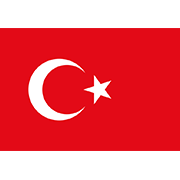Fiscal subject related
So, on the other hand, certain businesses are obligated to use e-Archive invoices if they meet specific criteria, including:
- Having a turnover exceeding 5 million Turkish Lira (approximately EUR 650,000) in 2020 or later.
- Being an e-invoice taxpayer
- Engaging in online sales of goods or services.
- Receiving or making cash payments of no less than 10,000 Turkish Lira (about EUR 1,300) in a single transaction.
- Operating in specific sectors such as petroleum, tobacco, alcohol, and more.
Even if your business is not required to use e-Archive invoices, you can still opt for them voluntarily, as they offer numerous benefits. Some of these advantages include:
- Cost savings: By eliminating the need for printing, sending, and storing paper invoices, you can reduce expenses associated with traditional invoicing methods.
- Time savings: e-Archive invoices streamline the invoicing process, helping you avoid delays and errors commonly found in manual processes.
- Environmental friendliness: By reducing paper usage and waste, e-Archive invoices contribute to a more sustainable business environment.
- Accessibility: e-Archive invoices can be easily accessed and tracked anytime and anywhere, providing convenience and flexibility.
- Compliance: By utilizing e-Archive invoices, you can meet legal requirements and minimize the risk of penalties or audits.
- By using the e-Archive system, retailers can avoid using new-generation cash registers and thus be compliant with fiscalization requirements in an easier way.
To issue e-Archive invoices to your customers, follow these steps:
- Register for the e-Archive system on the TA (GİB) website or through an authorized intermediary institution.
- Prepare your invoice in the UBL-TR XML format, which is the standard data format for electronic invoices in Turkey.
- Send the invoice directly to your customer via email, SMS, or a printed document.
- Report your invoices daily to the GİB in the specified format.
Other news from Turkey
Turkey Publishes Guide for New Generation Payment Recorder Devices
 Turkey
Author: Ivana Picajkić
Turkey
Author: Ivana Picajkić
A new official guide has been published to help merchants understand how to comply with the mandatory use of New Generation Payment Recorder Devices (YN POS) for retail sales where no invoice is required. Read more
Subscribe to get access to the latest news, documents, webinars and educations.
Already subscriber? Login


Turkey Published Tax Procedure Law Communiqué No. 584 on the Transition of Simplified Procedure Taxpayers
 Turkey
Author: Ivana Picajkić
Turkey
Author: Ivana Picajkić
Türkiye’s Communiqué No. 584 sets out how simplified-procedure taxpayers must transition to the real taxation method on 1 January 2026, including how documents are issued, obtained, returned, and cancelled. Read more
Subscribe to get access to the latest news, documents, webinars and educations.
Already subscriber? Login


Turkey: Updated VAT Reporting Steps for Ledger Declarations
 Turkey
Author: Ivana Picajkić
Turkey
Author: Ivana Picajkić
Türkiye’s updated VAT reporting rules require taxpayers to choose between two system paths depending on whether VAT must be calculated for transactions subject to a special tax base. Read more
Subscribe to get access to the latest news, documents, webinars and educations.
Already subscriber? Login


Turkey Proposes Strict New Controls on POS and Virtual POS with New Regulations
 Turkey
Author: Ivana Picajkić
Turkey
Author: Ivana Picajkić
Turkey’s Revenue Administration’s draft General Communiqué aims to enhance control over card payments, ensuring accurate recording of all electronic transactions, including credit/debit cards and QR codes. Read more
Subscribe to get access to the latest news, documents, webinars and educations.
Already subscriber? Login


Understanding Turkey’s E-Invoicing System
 Turkey
Author: Ivana Picajkić
Turkey
Author: Ivana Picajkić
Turkey's advanced e-invoicing system is mandatory for various taxpayers, with B2B, B2G, and B2C covers. By 2026, near-universal e-invoicing is expected, including sector-specific rules. Compliance penalties exist for non-compliance. The system integrates with GİB for real-time reporting, leading to full digital transaction control. Turkey has built one of the most advanced e-invoicing and e-report... Read more



Turkey Updates e-Invoice Package – Changes Effective December 1, 2025
 Turkey
Author: Ivana Picajkić
Turkey
Author: Ivana Picajkić
The Revenue Administration (GİB) will implement an updated e-Fatura Package on December 1, 2025, enhancing technical rules, code lists, and integration forms. Read more
Subscribe to get access to the latest news, documents, webinars and educations.
Already subscriber? Login


Turkey: Small Businesses Taxed Under the Simplified Method Face New Compliance Rules in 2026
 Turkey
Author: Ivana Picajkić
Turkey
Author: Ivana Picajkić
Turkey has confirmed that e-Invoice obligations are based on annual turnover—not the number of POS devices—while retailers must still use New Generation Payment Recording Devices (YN ÖKC) unless they qualify for a full digital exemption. . Read more
Subscribe to get access to the latest news, documents, webinars and educations.
Already subscriber? Login

